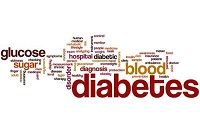Glycemic Control Key to Exercise Benefit in Diabetes
Baseline glycemic control can help individuals with type 2 diabetes achieve more significant body-composition results from their exercise regimens.

Exercise is more complicated for people with diabetes.
A study from Johns Hopkins University in Baltimore, Maryland investigating the effects of exercise training in 40- to 65-year-old patients with type 2 diabetes revealed a new link between training and baseline hyperglycemia.
Physical exercise has long been shown to have positive benefits for patients with type 1 and type 2 diabetes, but according to lead researcher Swaytha V. Yalamanchi, and colleagues from the Division of Endocrinology, Diabetes, and Metabolism at the university, there has been little research examining the "relationship of hyperglycemia to changes in fat and muscle mass after exercise training." Yalamanchi pointed out that "not all persons with diabetes have positive benefits following exercise; in fact, ‘‘exercise resistance” has been reported in 15 to 20% of persons with diabetes for reasons that remain unclear."
The study determined that the "exercise resistance" could be linked to the adverse relationship between hyperglycemia and the "magnitude of fat loss and muscle mass gain for individual participants." The researchers discovered that while patients with hyperglycemia certainly benefited from regular exercise, they did so to a lesser degree than non-diabetic persons.
Study participants were between the ages of 40 to 65 years old, had been diagnosed with type 2 diabetes, were not being treated with insulin, and had untreated suboptimal blood pressure. The participants were asked to maintain their usual diets, and were enrolled in the Sugar, Hypertension and Physical Exercise (SHAPE) 2 trial, a six-month long "supervised aerobic and resistance training intervention (three days/week), at Johns Hopkins." Fifty participants completed the six-month long program, during which "absolute fat mass, absolute lean mass, percentage lean body mass and percentage body fat were assessed using dual energy X-ray absorptiometry." Blood tests and insulin sensitivity checks were also performed regularly to document glycemic levels.
By program completion participants had lost 2.1 kg of total body weight on average, but despite showing an increase in muscle strength, many showed a non-significant gain in absolute and total lean mass. Individual results showed a significant link between baseline glycemic control and "lean body mass gains and fat mass losses." The study revealed that while elevated fasting glucose levels do not "negatively impact muscle mass gains," baseline glycemic control can help individuals achieve more significant body composition results from their exercise regimens.
Yalamanchi and colleagues note that, "The results of our study support the importance of physical activity for all persons with type 2 diabetes, but suggest that these benefits relate to the degree of hyperglycemia, and may ultimately inform future targeted prevention and treatment strategies for those who have the greatest potential to gain from regular exercise." The researchers hope that further research on exercise, body composition changes, and glycemic control might better inform clinical practices and might "have implications in ultimately reducing the burden of disability in persons with diabetes."
The article "The relationship of fasting hyperglycemia to changes in fat and muscle mass after exercise training in type 2 diabetes" was published by Diabetes Research and Clinical Practice in October 2016.
Related Coverage:
Massive Review Correlates Exercise with Reduced Diabetes Risk
High Intensity Exercise Recommended for Type 1 Diabetes Patients